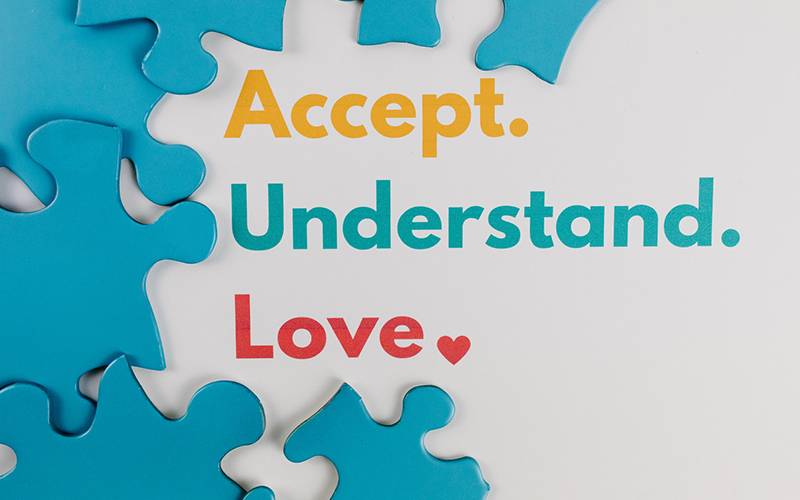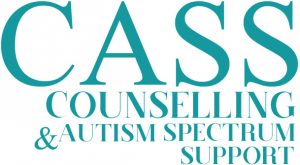Neurodiversity removing the stigma against Autism
Numerous autistic individuals have embraced the neurodiversity system. The word neurotypical portrays the more significant part of the brain, whereas autism is an explanation for the presence of variety in the arrangement of all possible diverse minds.
Autistic as Health professionals:
Health professionals who are autistic feel that their differences have helped them in their profession. However, stigmas about their different aspects have led them to keep their conditions to themselves. Steph Jones, a blogger alongside a successful psychotherapist, thought she was a psychic. She was very intuitive and could easily state her client’s conditions before they even took a seat. This is because Jones can encounter others’ feelings and their actual sensations in her own body.
Mirror-Touch Synesthesia:
The mirror-touch synesthesia lets the individual vicariously experience others’ physical and emotional sensations as their own. According to World Health, it influences 2% of the population. However, it differs from one individual to another. It means people feel a similar sensation, similar to contact, in the precise area of the body to that of someone else’s experience. Additionally, it also can be experienced as an echo of the sensation.
Benefits of Neurodiversity for Autism:
- It celebrates individuals for what their identity is.
- It creates some distance from the ‘suffering’ approach. However, it embraces the disparities and urges them to make every second count.
- Organisations will start to empower applications from neurodiverse individuals.
- It can assist with making working environments to be equal in their representation.
- Autistic individuals.
- It makes individuals more mindful of the language they use, encompassing autism.
Autism aspires to a broad spectrum of opportunities:
- They uniquely approach things.
- They have an intimate affinity with technology and mentally invigorating subjects.
- They are not prone to conform to the nomad style of community.
- They aspire to have extraordinary musical abilities.
- They are more detail-oriented than neurotypical individuals.
- They possess solid visual-spatial skills.
- They are highly and uniquely creative in their perspectives.
Autism Concerning the Empathic Profession:
It could appear counterintuitive to individuals that neurodiverse individuals who observe social connection complex ought to pick a vocation with compassion and empathy. Being autistic can turbocharge a psychotherapist’s profession, empowering them to recognise cues that some neurotypical therapists would not recognise straight away. Furthermore, they’re probably not going to show bias and will be making the client feel acknowledged.
Autistic people can have qualities that might help bosses, such as persistence and the capacity to see things unexpectedly, which can be extraordinary for critical thinking. However, job hunting and remaining steadfastly employed can be challenging. Autism influences communication abilities. Individuals might battle during interviews, answering the questions, and being frowned upon in their body language. Furthermore, while their employment, sensory overload can create havoc on their peace of mind, affecting their work performance.
A virtual community of Autistic individuals:
Jones has been working on coming out of the closet and approaching fellow autistic professionals. Working on how to overcome their hurdles in the workplace, she approached the autistic community on the internet. She was pleasantly surprised by the number of responses. Mostly the autistics belonged to psychological health. It helps to find out that there are others out there looking to connect and help where they need.
Neurodiversity is a reality of nature. Hence, it is useless to be a neurodiversity denier any more than a biodiversity denier. An absence of awareness, stigma and a suitable framework can cause the rejection of individuals with neurodevelopmental differences. Understanding and embracing neurodiversity can further develop inclusivity for all individuals.
References:
Baumer, N., & Frueh, J. (2021, November 23). What is neurodiversity? Harvard Health. Retrieved March 14, 2022, from https://www.health.harvard.edu/blog/what-is-neurodiversity-202111232645
Bennie, M. (2020, April 26). What is neurodiversity? Autism Awareness. Retrieved March 14, 2022, from https://autismawarenesscentre.com/un-adopts-new-goals-disabilities/
Brusie, C. (2021, November 15). Neurotypical: All you need to know and more. Healthline. Retrieved March 14, 2022, from https://www.healthline.com/health/neurotypical#characteristics
Cohen, S. B. (2017, May 19). Editorial Perspective: Neurodiversity – a revolutionary concept for autism and psychiatry. The Association for Child and Adolescent Mental Health. Retrieved March 14, 2022, from https://acamh.onlinelibrary.wiley.com/doi/full/10.1111/jcpp.12703
Cohen, S. B. (2019, April 30). The concept of neurodiversity is dividing the autism community. Scientific American Blog Network. Retrieved March 14, 2022, from https://blogs.scientificamerican.com/observations/the-concept-of-neurodiversity-is-dividing-the-autism-community/
Collier, E. (2022, February 3). What is neurodiversity?: Neurodiversity in autism. The Hub | High Speed Training. Retrieved March 14, 2022, from https://www.highspeedtraining.co.uk/hub/neurodiversity-autism/
Hill, A. (2022, February 3). ‘Clients say it feels like we’ve always known each other’: The mental health experts who believe their autism has turbocharged their work. The Guardian. Retrieved March 14, 2022, from https://www.theguardian.com/society/2022/feb/03/clients-say-it-feels-like-weve-always-known-each-other-the-mental-health-experts-who-believe-their-autism-has-turbocharged-their-work
HUMANS. (2020, March 25). Autism isn’t a defect – here’s why we should embrace neurodiversity. New Scientist. Retrieved March 14, 2022, from https://www.newscientist.com/article/mg24532721-700-autism-isnt-a-defect-heres-why-we-should-embrace-neurodiversity/
Leadbitter, K., Buckle, K. L., Ellis, C., & Dekker, M. (2021, January 1). Autistic self-advocacy and the Neurodiversity Movement: Implications for Autism Early Intervention Research and Practice. Frontiers. Retrieved March 14, 2022, from https://www.frontiersin.org/articles/10.3389/fpsyg.2021.635690/full
Robertson, S. M. (n.d.). Neurodiversity, quality of life, and autistic adults: Shifting research and professional focuses onto real-life challenges. Disability Studies Quarterly. Retrieved March 14, 2022, from https://dsq-sds.org/article/view/1069/1234
Toolbox, A. (n.d.). What does neurodiversity mean? What does neurodiversity mean? | Autism Toolbox. Retrieved March 14, 2022, from http://www.autismtoolbox.co.uk/what-does-neurodiversity-mean


